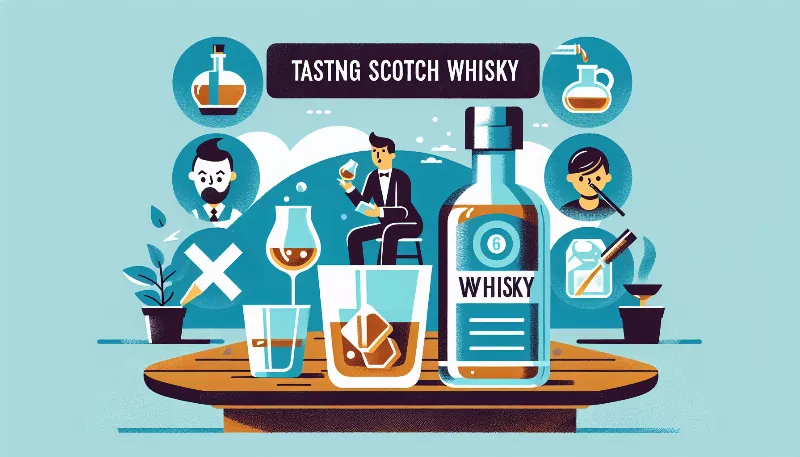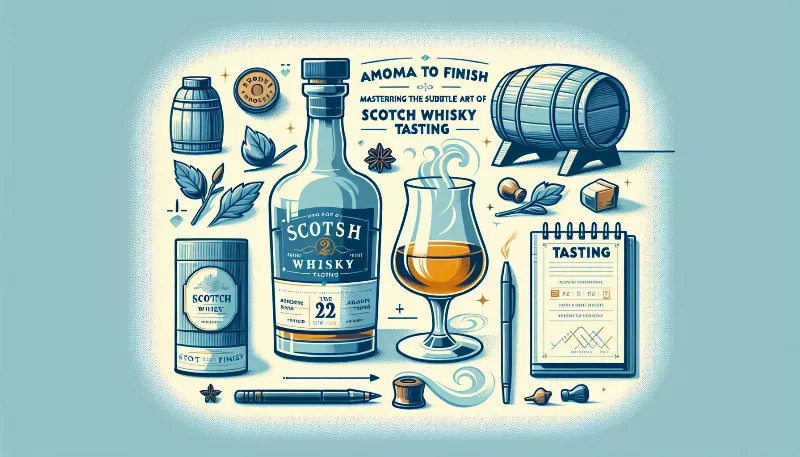Can Scotch whisky become 'over-aged', and if so, what are the signs?
Discover the truth about aging Scotch whisky. Learn the signs of over-aging and how it impacts flavor. Perfect your whisky knowledge now!

Unveiling the Mysteries of Scotch Whisky Aging
Scotch whisky, a beverage steeped in tradition and reverence, is often lauded for its aging process. The journey from a clear, fiery spirit to a complex, amber nectar is one that aficionados relish. But can this illustrious aging process go too far? Can a Scotch whisky truly become 'over-aged'? Let's dive into the heart of Scotland's distilleries and uncover the truth behind this tantalizing question.
Understanding the Aging Process
The aging of Scotch whisky is a delicate dance between spirit and wood. As the whisky slumbers in its oak casks, it undergoes a transformation, imbibing flavors, colors, and aromas from the wood. This maturation period is crucial, as it imparts depth and character to the whisky. However, the belief that 'older is always better' is not a hard and fast rule in the world of Scotch. In fact, there is a point where a whisky may reach its peak, after which additional aging could lead to a decline in its desirable qualities.
Can Scotch Whisky Become Over-Aged?
The answer is a nuanced yes. While many whiskies benefit from extended aging, there is a threshold beyond which the spirit might lose its balance and vibrancy. This phenomenon occurs when the whisky has extracted all it can from the oak, and the wood begins to dominate the flavor profile. The once harmonious symphony of tastes can become a one-note song of tannins and woodiness, overshadowing the subtler notes that define the spirit's essence.
Spotting the Signs of an Over-Aged Scotch
So, how does one identify an over-aged Scotch whisky? There are several telltale signs that connoisseurs and casual sippers alike can look out for:
- Overwhelming Oakiness: When the rich, rounded flavors of fruit, spice, and malt are eclipsed by an intense oak flavor, it's a sign that the wood has taken over.
- Diminished Complexity: A hallmark of a great Scotch is its complexity. If you find that the layers of flavor have flattened out, leaving a one-dimensional taste, the whisky may be past its prime.
- Excessive Dryness: An over-aged whisky can leave your palate feeling parched, a result of too much tannin leaching into the spirit from the cask.
- Lack of Freshness: A vibrant Scotch will have a certain liveliness to it. If your dram feels tired and lacks vitality, it could be a sign of over-aging.
It's important to note that these signs can vary depending on the type of cask used, the environment in which the whisky was aged, and the individual characteristics of the distillate itself.
Embracing the Sweet Spot
Discovering the 'sweet spot' for aging Scotch whisky is both an art and a science. Distillers spend years, even decades, perfecting the craft of knowing when a whisky has reached its optimal maturity. For whisky enthusiasts, the joy lies in exploring the vast landscape of Scotch whiskies, each with its own unique aging journey. Whether you prefer a sprightly 12-year-old or a venerable 30-year-old dram, the key is to savor the experience and appreciate the magic that time imparts on this storied spirit.
Final Thoughts
In conclusion, while Scotch whisky can indeed become over-aged, it is not a common occurrence, thanks to the expertise of master distillers. Nevertheless, being aware of the potential for over-aging allows us to approach each bottle with curiosity and discernment. So, raise a glass to the timeless craft of Scotch whisky aging, and may your next sip be perfectly matured!










